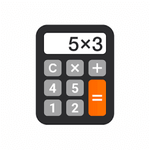- Joined
- Mar 17, 2018
- Messages
- 20,128
- Reaction score
- 28,356
- Handicap
- 18.0

Traci Davis Salary Compared to Past Superintendents
It's no secret that some people have been critical of Traci Davis' role as Superintendent of the Washoe County School District. A lot of people still talk about her salary.www.ktvn.com
This is very close to home for me. My district recently fired the sup. She was terrible. Very over paid, and didn't even reside in the district. Clothing budgets, car budget (when the district has company cars), etc etc etc.
Sorry for the bad apple. There are always going to be some. As a school director, our two biggest decision ever is going to be hiring a Superintendent and the student's Curriculum. We make a mistake and it will cost the entire community and all stakeholders dearly. My district is coming up on that process now and I expect we will take upwards of a year to interview and decide on who is best to run our district for years to come.
Now, back to our debate on why Common Core is bad and I am the only one trying to defend it to a point. Bring on my at-home math teachers baby!














